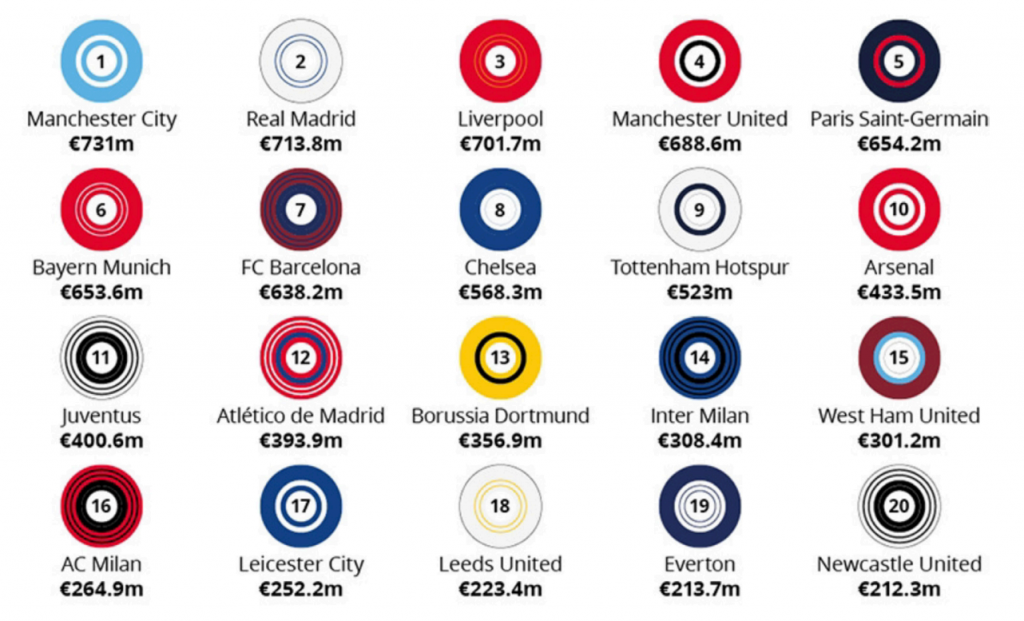Don’t dismiss the ESL so lightly. And IOC should poll not pontificate.
‘Laughable’, ‘all hot air’, ‘flimsy’, a ‘walking corpse’. So has English football, on a mostly unattributable basis, dismissed the attempt to breathe new life into the European Super League concept which unravelled so swiftly and spectacularly two years ago. But sat on this side of the English Channel, we would say that, wouldn’t we? Is it so unthinkable that clubs across the continent might yet wrestle power from UEFA’s sticky gloves?
The revised plans from the would-be rebels, unveiled last week, are founded on an appreciation of the financial hegemony of the Premier League. The Prem’s competitiveness is key to its commercial attractiveness. And with broadcast and sponsor revenues comes power in the transfer market. The flow of playing talent is increasingly one way, so making the financial circle even more virtuous. The net effect is that valuations of mid-ranking clubs in England’s top flight now outstrip all but the grandest names in the rest of Europe.
PSG currently top Ligue 1, having won eight of the past ten titles. Real Madrid, Barcelona and Atletico have together filled the top three slots in Spain for the past decade. Bayern Munich have won the Bundesliga every year over the same period, although are currently only a point clear of their nearest rivals this time around. By contrast, there have been five different English champions in ten years with a sixth team top of the table at the time of writing.
Juventus have won eight Serie A titles in ten years, but financial scandals have broken the club’s stranglehold in Italy. The two Milan clubs took a title apiece over the past two seasons and Napoli are currently runaway leaders. Juve have been docked 15 points, and so sit 9th rather than 2nd in the table.
Chuffed as they must be to be so dominant at home, it is little wonder that Europe’s leading clubs are anxious to squeeze all they can from cross-border competition – or indeed that they have a higher success rate there than England’s top teams. They’ve more scope to coast at home and greater incentive to succeed in the Champions League.
Accountants at Deloitte are the go-to source of data on football finance. Their annual rich list, unveiled last month, highlights that of the thirty clubs with the highest revenues in the world, sixteen are in the Premier League. Even my beloved Crystal Palace rank 26th – hard to credit sitting in Selhurst Park’s Main Stand which is approaching its 100th birthday and has long been slated for demolition and replacement.

In the spring of 2021, the owners of England’s so-called ‘big six’ teams backed the breakaway European Super League and then swiftly swivelled under fan pressure. It is inconceivable that they were driven at the time by a desire for a narrower gap between their finances and those of their continental rivals. Now, the talk is of the possibility of a new European club competition that might thrive without English involvement, however sub-optimal that would be. And narrow the gap as a consequence.
Premier League clubs may deride the vision of a much larger, more open, more meritocratic rebel competition, but what if it managed to overcome all of the legal and emotional barriers and actually came to pass? After all, UEFA is hardly the best-loved of organisations among either its member national associations, or the clubs who compete for its trophies each season.
UEFA has not helped its cause with its redesign of the Champions League. From 2024/25 onwards, the clunky ‘Swiss Model’ will be used to squeeze the number of competing teams up from 32 to 36. Expect much fan confusion and meaningless fixtures to follow.
Contrast that with the redrawn European Super League plan for 80 competing teams in a divisional structure.
Could this be more elegant that UEFA’s trio of cup competitions? And just imagine the lure for teams outside the superpower elite. First time round, the Premier League’s big names were sorely tempted but caved under pressure. Imagine the temptation now for middle-ranking clubs to become part of the Euro 80.
The power brokers at UEFA’s headquarters in Nyon would be well advised to go back to the drawing board on all of its club competition structures. They need to be much more coherent, accessible to more clubs across Europe, and must return more euros both to those clubs that qualify for them as well as those that don’t.
For such a derided organisation, relying on fan activism would be foolhardy for UEFA. After all, the average fan knows a meaningful, exciting competition when they see it. Europe’s rebel football owners may not have found the perfect construct yet, but it’s clear they are still trying and – however unlikely it seems – might eventually succeed.







